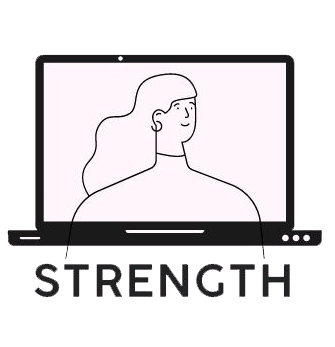The project STRENGTH developed didactic materials and a curriculum with a training framework for adult educators to qualify women with a migration background in basic education, language courses or other training programmes geared towards social and professional integration.
The following products are available to adult educators:
- Didactic materials on the digital learning arrangements developed (topics: social integration, professional integration, language training and basic digital skills). These are available as PDF files in English, German, French and Slovenian.
- A curriculum and training framework developed for adult educators who work with migrant women in adult education courses (basic education, language training, digital courses or similar) and have no/little experience with digital learning or already use digital learning but want to learn about new tools and methods. The curriculum is available as a PDF file in English, German, French and Slovenian. The training framework includes guidelines for adult educators, handouts for learners and a PowerPoint presentation.
Adult educators will need the following competences, information or teaching materials to use the products:
- Skills of teaching language (knowledge of LASLLIAM if applicable)
- Digital skills for the use of the “LearningApp” tool
- Access to the “LearningApp” tool with the necessary authorisations
- Socio-cultural competences
- Competences for task assignment and guidance
Are you a literacy and/or second language trainer for learners with a history of migration?
LASLLIAM describes, in addition to and overlapping with the Common European Framework of Reference for Languages (CEFR), four areas of competence in the second language, including the area of “literacy”.
Further information can be found in the didactic documents.
